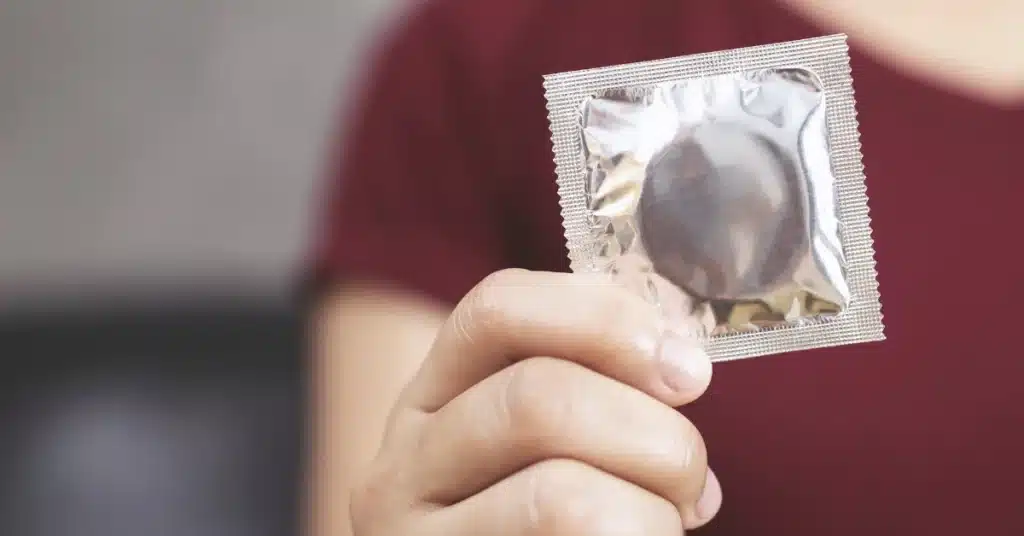Can You Get Chlamydia From Kissing? Myths, Facts, and Safeguarding Sexual Health
Chlamydia Trachomatis, a bacterial infection, is recognized as the most prevalent Sexually Transmitted Infection (STI) in the United States.
According to reports published by the Centers for Disease Control and Prevention, Chlamydia infected over 1.6 million individuals in the US alone in 2021.
This infection is particularly prevalent among young people.
While its primary mode of transmission is through sexual contact, there has been speculation and concern regarding the possibility of contracting Chlamydia through kissing.
This article delves into existing research to unravel the truth behind the question: Can you get Chlamydia from kissing?
Can you catch Chlamydia through kissing

The question of whether Chlamydia can be transmitted through kissing revolves around the possibility of the bacteria being present in saliva.
Research studies have consistently shown that Chlamydia Trachomatis primarily thrives in the mucous membranes of the genital and rectal areas.
Current scientific understanding suggests that saliva has an inhibitory effect against Chlamydia Trachomatis.
It means that saliva is capable of preventing or reducing the growth or activity of the bacterium Chlamydia Trachomatis.
While the bacteria can infect the throat through oral sex, it is not commonly found in the saliva.
This significantly diminishes the likelihood of Chlamydia transmission through casual activities like kissing.
Moreover, the bacteria’s survival outside of the human body is limited, and it is sensitive to environmental conditions.
Chlamydia is not known to survive well on surfaces like skin or inanimate objects, further reducing the risk of transmission through indirect contact.
How does Chlamydia transmit
The primary mode of Chlamydia transmission is through the exchange of bodily fluids, such as penile, vaginal, or rectal secretions, during sexual activities.
Unprotected sexual intercourse, both vaginal and anal, poses a significant risk.
However, the question arises when considering the transmission potential of Chlamydia through saliva.
Individuals who engage in oral sex, both giving and receiving, with an infected partner may be at risk of contracting Chlamydia in the throat, even though it is less likely.
Chlamydia in the throat, or Oropharyngeal Chlamydia, can present challenges for diagnosis due to the lack of noticeable symptoms in many cases.
Eye infections can occur when the transmission of the infection happens through discharge, either during sexual activity or through hand-to-eye contact.
Reducing the risk

To minimize the risk of Chlamydia transmission, individuals are advised to practice safe sex by using condoms or dental dams consistently and correctly during sexual activities.
Barriers provide effective protection against the exchange of bodily fluids that may carry Chlamydia.
Regular testing for STIs is paramount, especially for individuals engaging in unprotected sex or with new partners.
Early detection allows for timely treatment through antibiotics, reducing the risk of complications and the potential for further transmission.
Open communication with your healthcare provider about sexual partners, sexual health, past infections, and safer sex practices is crucial in maintaining a healthy and informed sexual relationship.
Conclusion
In conclusion, the scientific evidence suggests that the risk of contracting Chlamydia from kissing is minimal.
The bacterium is not commonly found in saliva, reducing the likelihood of transmission through this mode of contact.
However, individuals must remain vigilant about engaging in safe sexual practices, especially when it comes to oral sex, as this activity can introduce bacteria to the throat.
Understanding the modes of Chlamydia transmission and taking proactive measures to prevent STIs are critical aspects of sexual health.
Education, communication, and regular testing contribute to a responsible and informed approach to maintaining well-being.
For any queries regarding your or your partner’s sexual health, do not hesitate to consult with a healthcare provider.
Frequently Asked Questions
Can you get Chlamydia from tongue kissing?
Chlamydia transmission through tongue kissing is unlikely. The bacterium Chlamydia Trachomatis primarily resides in genital and rectal mucous membranes, not saliva. Casual kissing is generally considered a low-risk activity for Chlamydia transmission.
Can you get Chlamydia from someone licking you?
The risk of getting Chlamydia from someone licking you is minimal. Chlamydia is primarily transmitted through sexual activities involving genital, penile, or rectal secretions. While oral sex can introduce the bacterium to the throat, casual licking poses a lower risk.
Can Chlamydia be spread through saliva?
Chlamydia is not commonly spread through saliva. While the bacterium can infect the throat through oral sex, it is not generally present in saliva in quantities sufficient for transmission. The primary mode of Chlamydia transmission is through sexual contact involving bodily fluids.
Can you get Chlamydia without being sexually active?
Yes, it is possible to get Chlamydia without being sexually active. While sexual contact is the primary mode of transmission, newborns can acquire Chlamydia during childbirth. Additionally, certain non-sexual activities like sharing contaminated towels, needles, razors, or other personal items may pose a minimal risk.
WowRx uses only high-quality sources while writing our articles. Please read our content information policy to know more about how we keep our content reliable and trustworthy.






